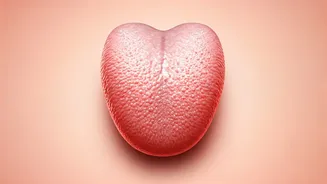Understanding Dry Mouth
Dry mouth, medically termed xerostomia, occurs when the salivary glands fail to produce sufficient saliva. Saliva is crucial for oral health, playing a vital
role in keeping the mouth moist, aiding in swallowing, and preventing infections. Its absence can lead to discomfort and increase the risk of dental problems. Xerostomia can result from various factors, including medications, certain medical conditions, and lifestyle choices. Recognizing the underlying causes is the first step toward effective management and treatment of dry mouth. The condition is not just a nuisance; it affects the overall well-being of a person.
Common Symptoms Observed
The symptoms of dry mouth can vary, but some common indicators help in identifying the condition. These include a sticky or dry feeling in the mouth, difficulty swallowing or speaking, and a sore throat. Other symptoms may be a burning sensation in the mouth, cracked lips, and dry nasal passages. People with dry mouth often find it hard to wear dentures. Increased plaque and tooth decay can also occur due to the lack of saliva. If you notice these symptoms, it's essential to consult a healthcare professional for diagnosis and appropriate management strategies.
Root Causes Explored
Dry mouth can stem from multiple factors, with medications being a significant contributor. Many prescription and over-the-counter drugs, such as antihistamines, antidepressants, and high blood pressure medications, list dry mouth as a side effect. Certain medical conditions, like diabetes, Sjögren's syndrome, and HIV/AIDS, can also diminish saliva production. Moreover, lifestyle choices such as smoking, alcohol consumption, and inadequate fluid intake can exacerbate the condition. Understanding these underlying causes is vital in determining the most effective course of treatment for the individual experiencing dry mouth.
Effective Treatment Options
Fortunately, several treatments can help alleviate the discomfort associated with dry mouth. The choice of treatment depends on the underlying cause and severity of the condition. One approach is to adjust medications if they are the cause of the dryness, under medical supervision. Drinking plenty of water, using sugar-free gum or lozenges, and avoiding caffeine and alcohol can provide relief. Over-the-counter saliva substitutes and oral rinses formulated for dry mouth can also help keep the mouth moist. Furthermore, consulting a dentist can help identify and treat any dental issues resulting from dry mouth and suggest other treatment options.
Lifestyle Adaptations Needed
Alongside medical treatments, some lifestyle adjustments can significantly help manage dry mouth symptoms. Staying well-hydrated by drinking plenty of water throughout the day is crucial. Avoiding sugary or acidic foods and drinks helps protect against tooth decay. Using a humidifier, especially at night, can increase the moisture in the air. Regular dental check-ups are also essential to monitor and treat any oral health problems. These lifestyle changes, when combined with appropriate medical care, can significantly improve the quality of life for those suffering from dry mouth.



















